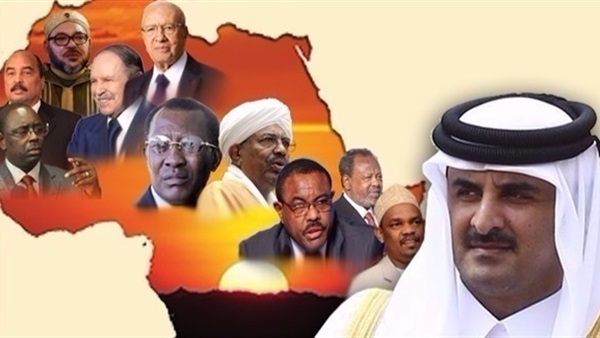Qatar on the way out as Horn of Africa undergoes change

Mohamed
al-Daboli
The
Horn of Africa region witnessed major transformations in the past few months.
These
include a change in the nature of regional alliances, one that will ultimately
lead to reducing Qatari and Turkish influence in this strategic region.
Ethiopia
was instrumental in effecting these transformations, thanks to its strategic
location and also its vital role in the region.
In
playing a role in this regard, Addis Ababa was motivated by internal political
changes happening in it since the beginning of this year. These changes brought
Abiy Ahmed to the helm in the African state. Ethiopia was also motivated by
growing regional support, especially from Egypt, Saudi Arabia and the United
Arab Emirates.
Support
by the two states has had far-reaching ramifications on conditions in the
region. This is manifest in the role the three of them played in helping
Eritrea and Ethiopia reach peace after years of animosity. They also played a
role in ending tensions between Eritrea and Djibouti.
Ongoing work
Mediation
among regional rivals and also an attempt to find a framework for regional
security are among the things being done in the Horn of Africa region now. The
aim of these efforts is to reach the state of zero problems or zero
animosities. They also aim to convince regional actors to suspend some of their
old policies that caused problems to neighboring states in the past.
Growing Saudi presence
Saudi
Arabia has been trying to expand its presence in the Horn of Africa region.
This was clear in latest developments in the region, especially in
understandings reached between Eritrea and Djibouti. The two states were
entangled in border disputes for a long time.
Ethiopia
and Somalia appeared to play a big role in mediation between Djibouti and
Eritrea. Nonetheless, Djiboutian Foreign Minister Mohamed Ali Youssef said
unveiled on Twitter recently the presence of a Saudi role in mediation between
his country, on one hand, and Eritrea, on the other.
On
September 16, the Saudi city of Jeddah hosted a mini-Horn of Africa summit. The
leaders of Ethiopia, Eritrea and Djibouti attended the summit. Ethiopia and
Eritrea signed a reconciliation agreement during the summit. Discussions during
the event also focused on means of ending tensions between Djibouti and
Eritrea.
But
this is only part of Saudi efforts to bring about peace in the Horn of Africa
region. According to think tank Mogadishu Studies Center, Saudi Arabia was
represented in all conferences on the Somali crisis. Saudi Arabia also hosted
Somali rivals in 2007 in its bid to end the war in the restive country, the center
said.
Saudi
Arabia works to end Qatari presence in the region, especially in Djibouti. When
the Gulf crisis started, Djibouti's stance was not clear. It first took sides
with the four Arab states, namely Egypt, Saudi Arabia, the UAE and Bahrain,
which cut off diplomatic and trade ties with Doha.
Qatar,
in response, pulled out its troops out of the border Damaira region which is at
the center of disputes with Eritrea. Start 2018, Djibouti started getting
closer to Qatar yet again by picking for trouble with the UAE. In February
2018, Djibouti terminated a contract it signed earlier with the Emirati company
DP World for the upgrade of the Port of Doraleh.
Saudi
mediation encouraged Eritrea and Djibouti to normalize relations after years of
boycott.
Ending Eritrean-Ethiopian tensions
In
his first speech, after taking over in Ethiopia at the end of March this year,
Abiy Ahmed said he would work to end problems with Eritrea. In July 2018,
Ethiopia and Eritrea agreed to abide by the Algiers Agreement which called for
withdrawal from the disputed Badme region. In September, the two states
reopened their borders.
Ahmed
and Eritrean President Isaias Afwerki used common understandings between them
to declare an official end to the war between their two countries. Both leaders
also opened shared borders.





